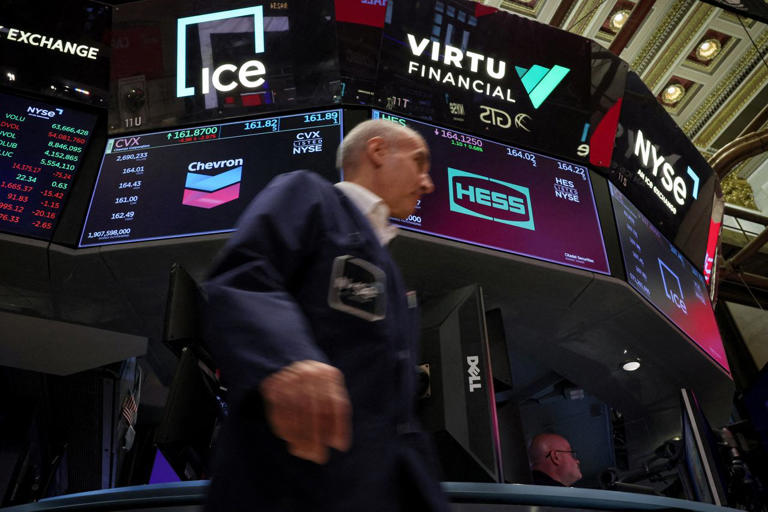Hess’s shareholders recently delivered a pivotal endorsement, voting in favor of a monumental $53 billion acquisition deal with Chevron. This green light marks a significant milestone in the journey towards merger completion, particularly amidst the backdrop of a heated dispute involving Exxon Mobil. The conflict has cast a shadow of uncertainty over the deal, potentially reshaping the trajectories of both Chevron and Hess in the process.
The shareholder vote held considerable weight, especially as it unfolded against the backdrop of tension between Exxon, Chevron, and Hess over the latter’s stake in an oil reserve situated in Guyana. Exxon’s vigorous assertion of its right to challenge Chevron’s offer for Hess’s shares within a drilling consortium, alongside its pursuit of arbitration, introduced layers of complexity into the situation.
Nonetheless, Hess reported that a majority of outstanding shares had been cast in favor of adopting the merger agreement, signaling a vote of confidence from shareholders. John Hess, the Chief Executive of Hess Corporation, expressed optimism about the merger’s prospects, underscoring Chevron’s position as the second-largest Western oil company and the potential synergies of the combined entity.
Despite the shareholder nod, hurdles persist. Institutional Shareholder Services raised questions about the deal’s valuation, and uncertainties loom over the duration of the arbitration process. Additionally, significant stockholders, including D.E. Shaw, voiced concerns about the deal’s failure to address delays stemming from the dispute with Exxon, which has resulted in Hess shareholders missing out on Chevron’s dividends.
Exxon’s arbitration proceedings, slated to extend into 2025, further complicate matters, impacting the timeline for finalizing the merger. However, recent efforts by John Hess to instill investor confidence in the deal’s viability have been noted, highlighting historical instances where rights of first refusal did not impede corporate transactions.
The shareholder approval deals a blow to hedge funds seeking to pressure Hess into renegotiating the deal. While Hess’s stock saw a marginal uptick post-announcement, Chevron’s stock witnessed a modest increase, reflecting market optimism in the merger’s potential.
The dispute with Exxon over Hess’s Guyana holdings adds another layer of uncertainty. Should Exxon’s argument prevail in arbitration, it could derail the Chevron merger, potentially dissuading future suitors and triggering significant financial ramifications, including a breakup fee to Chevron under certain conditions.
Separately, Chevron and Hess confront scrutiny from the Federal Trade Commission, although analysts remain optimistic about the deal’s eventual approval. Recent antitrust agreements between regulators and Exxon have further bolstered prospects for merger clearance.
In conclusion, while the shareholder vote represents a pivotal step forward, uncertainties loom large, particularly regarding the arbitration with Exxon and regulatory approval. Nevertheless, shareholder endorsement underscores confidence in the deal’s long-term prospects, signaling a potentially transformative chapter for both Chevron and Hess, albeit one still fraught with challenges.
